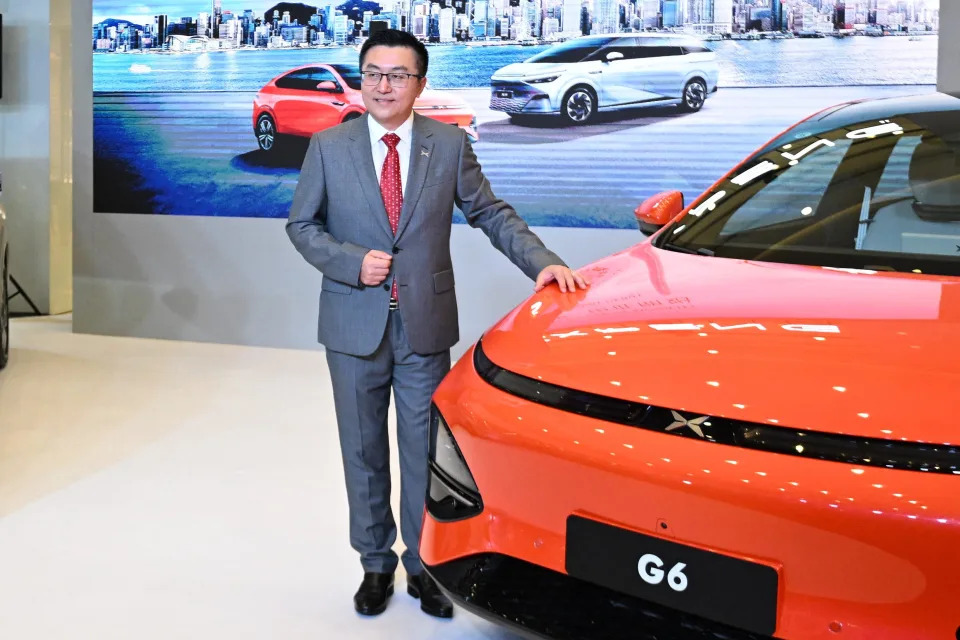Chinese EV startup Xpeng is relishing the prospect of testing its tech against Tesla.
Like other Chinese EV companies, Xpeng is blocked from entering the US market by tariffs.
Meanwhile, Tesla has been trying to get approval to sell its autonomous driving tech in China.
One of Tesla’s biggest Chinese rivals is welcoming the prospect of a tech battle with the automaker after being blocked from the US by punishing tariffs.
Speaking at a roundtable at the Paris Motor Show on Monday, Xpeng co-president Brian Gu said the Guangzhou-based EV startup, one of many competing with Tesla in China, was keen to see how its autonomous driving technology shapes up to Elon Musk’s.
It is good news for us. You need competition to expand the field … We obviously cannot go to the US at the moment to compete or compare there,” the Xpeng executive said.
“But if they are in China, we can compete side by side and learn from them, and they can learn from us and help the market. It’s a bigger pie for all of us to enjoy,” he added.
Tesla is reportedly close to getting the green light to sell its Full-Self-Driving technologies in China. The company says it plans to launch the feature in the region in Q1 2025 pending regulatory approval.
It will face brutal competition in China, with many EV makers marketing their own autonomous driving systems.
Xpeng’s City Navigation Guided Pilot (NGP) system is available throughout China, for example.
Like Tesla’s full self-driving, NGP can overtake, recognize traffic signals, and conduct lane changes.
Tariff troubles
Along with China’s EV giants, Xpeng has been effectively blocked from selling its electric vehicles in the US by tariffs.
President Joe Biden announced a 100% levy on China-made EVs in May, in an attempt to protect the US auto industry from a wave of cheap Chinese electric cars.
Xpeng and its rivals are facing tariffs in the EU, which voted to impose additional levies of up to 35.3% on Chinese automakers earlier this month.



